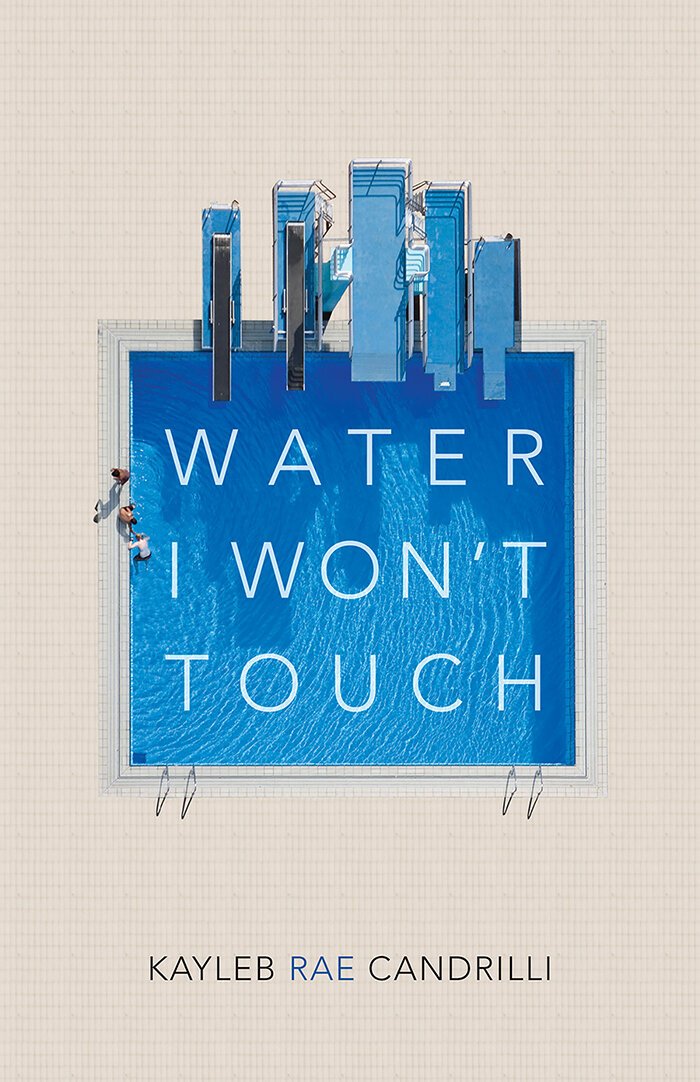Water I Won’t Touch
Kayleb Rae Candrilli
Reviewed by Elizabeth Muscari
Tender and brave, Kayleb Rae Candrilli’s poetry collection Water I Won’t Touch asks us to consider “Haven’t we all chewed / through something tough and survived?” Candrilli blends gentle love with brute force, detailing a transgender experience in insensitive and intolerant spaces.
This vibrant collection bursts with all kinds of life: flowers and the arctic and animals and rural America and a transforming physical body. It also details what challenges life: intolerance, a volatile childhood, a family’s dysfunction, and addiction.
In the opening poem, “Sand & Silt,” a boy yanks the speaker’s ankles, touching them “as he shouldn’t have,” the violence deeply affecting them. In this poem and elsewhere, the speaker contemplates how a story of violation can stay “spurred into our bones.”
Candrilli constructs these story-spurs with precise, emotional narratives inextricably tied to the natural world and its inhabitants.
From the shorelines of New Jersey to the mountains of Appalachia, these poems are tightly woven with geography and memory–the heartbreak that drowns us in sorrow and the hope that keeps us afloat. One moment the speaker describes alcoholism and drug abuse, another they discuss wanting to marry their partner on a beach.
Life blends with loss such as in “Water We Won’t Touch.” The speaker details their father’s history of addiction, and the impact it has had on their sibling: “For years my father had my sibling / water-locked, drug-spun– / surrounded by the Pacific / and saline-flushed needles.”
In “On Having Forgotten to Recycle,” we see a fascinating relationship between the speaker’s body post-double mastectomy and the earth: “I have cleaved whole mountains from / my chest and sent them to soak in an offshore landfill.” Like the Arctic, the speaker notes their body is smaller, but their heart is “much closer to the sun.”
Candrilli’s language is precise, contained in unrhymed stanzas and bold in its use of space–one moment a poem details addiction in couplets, another, horizontally oriented, stretches across pages.
Stakes are certainly high in this collection, and there’s a brave sense of hope that surfaces from pain. In “Echo,” the worried speaker compares their partner’s abnormally beating heart to an orchid, an unlikely and gorgeous comparison–it veers from the anxieties of the body, and invests in the beauty found within it.
The compassion found in these poems paired with heartbreaking and violent images show how such elements can exist in the same space and body. They interact with one another, shaping our worlds and identities.
Kayleb Rae Candrilli’s brilliant collection is full of passion and ache. It’s full of heart. It’s courageous. Water I Won’t Touch names the beauty and ugliness of our world. Primarily focusing on the trans experience, this collection holds both love and loss in the same light, showing the joy and possibility that emerges.

